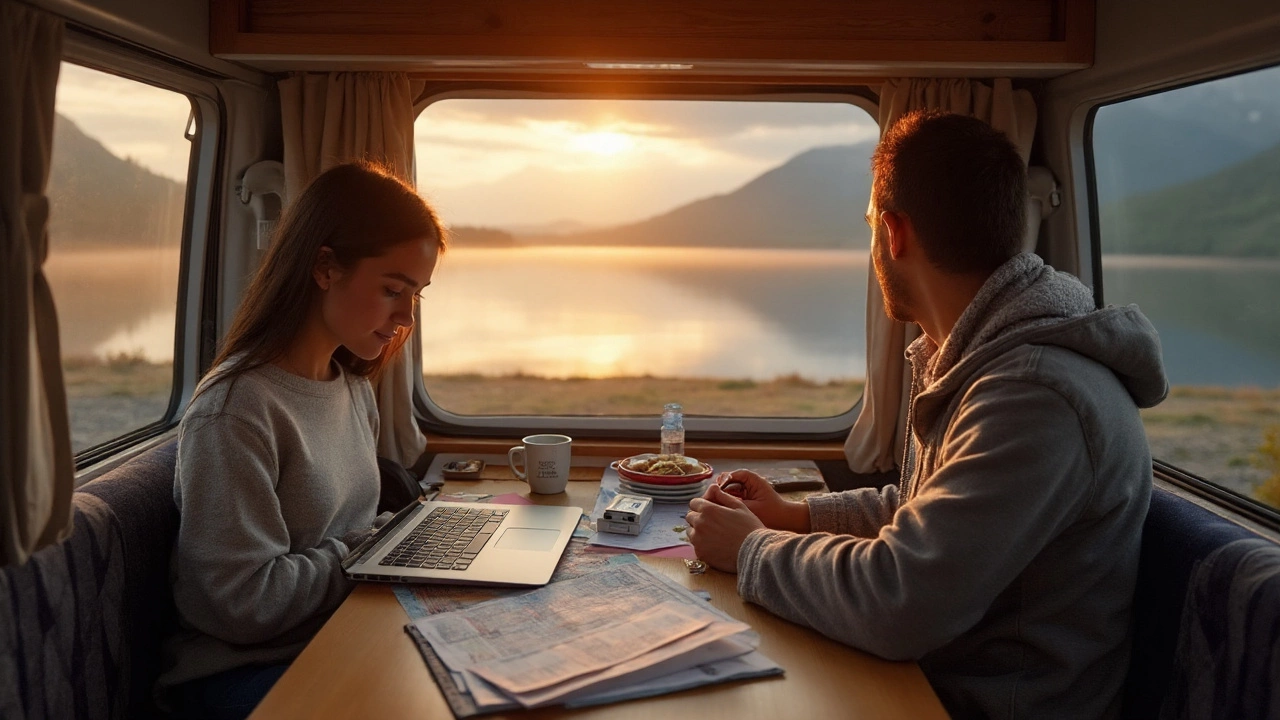
Is Full‑Time RVing Affordable in 2025? Real Costs, Budgets, and Ways to Save
Is full‑time RVing affordable in 2025? Get clear monthly budgets, cost breakdowns, and smart ways to save across the US, UK, and Europe.
Read MoreIf you’ve ever dreamed of swapping a house for a motorhome, you’re not alone. More people are choosing full‑time RVing to trade mortgages for mileage. The idea sounds romantic, but the reality comes with a few extra considerations: budgets, laws, and daily habits. Below you’ll find the basics you need to decide if a permanent road life fits your style.
First‑time full‑time RVers often ask, “Will this actually save me money?” The answer depends on three things: the motorhome purchase or hire price, ongoing expenses, and where you park. A decent used motorhome in Nottingham can range from £30,000 to £60,000. If you prefer hiring, weekly rates sit around £300‑£500, which adds up quickly if you stay on the road year‑round.
Beyond the upfront cost, plan for fuel (about £1.40 per litre on average), insurance (£500‑£1,200 annually), and maintenance (£100‑£300 a month). Campsite fees vary: a basic pitch with electricity costs £15‑£30 per night, while a boondocking spot (free) saves you the nightly charge but may lack water or waste facilities. Many full‑time RVers mix paid sites with free stops to keep the budget in check.
Don’t forget taxes and road licensing. In the UK, a motorhome over 3.5 tonnes needs a DVLA licence, and you’ll pay annual vehicle tax based on emissions. Adding up these items, a realistic monthly budget sits between £1,200 and £1,800 for a modest lifestyle.
Living on wheels means you become your own plumber, electrician and chef. Keep a simple checklist: water tank level, battery charge, tire pressure and waste tank empties. A quick daily glance saves you from surprises on the road.
Power is a common headache. A portable power station, like the ones reviewed in our blog, can bridge the gap when campsite electricity isn’t available. Pair it with a small solar panel, and you’ll keep essential devices running without constantly hunting a plug.
Cooking in a motorhome is easier than you think. Stick to one‑pot meals, use a compact induction cooktop, and store leftovers in airtight containers. A good cooler or a mini‑fridge keeps perishables fresh for a few days, reducing the need for daily supermarket trips.
Safety rules differ from a regular car. Remember that walking inside a moving motorhome is illegal in the UK, and children must wear seat belts at all times. Familiarise yourself with these regulations before you set off, or you might end up with a fine.
Finally, pick your parking spots wisely. Public parks often allow overnight stays, but check local bylaws first. When you need a guaranteed spot, book ahead at a certified Nottingham campsite – they usually offer electric hook‑up, fresh water, and waste disposal, making life on the road far less stressful.
Full‑time RVing isn’t a wild ride for everyone, but with a clear budget, a solid routine and a bit of research, it can be an affordable and liberating way to explore the UK. Start small, maybe with a weekend trial, and see how the motorhome life feels before you commit fully. Happy travels!

Is full‑time RVing affordable in 2025? Get clear monthly budgets, cost breakdowns, and smart ways to save across the US, UK, and Europe.
Read More